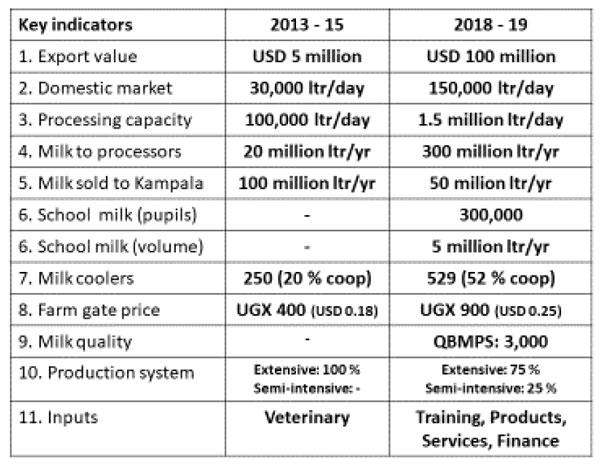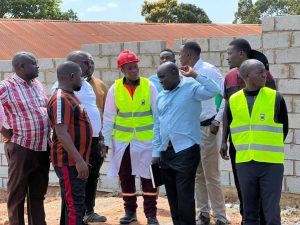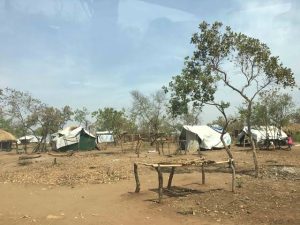EKN invests more Sh42b to boost dairy sector in South Western Uganda
3 min read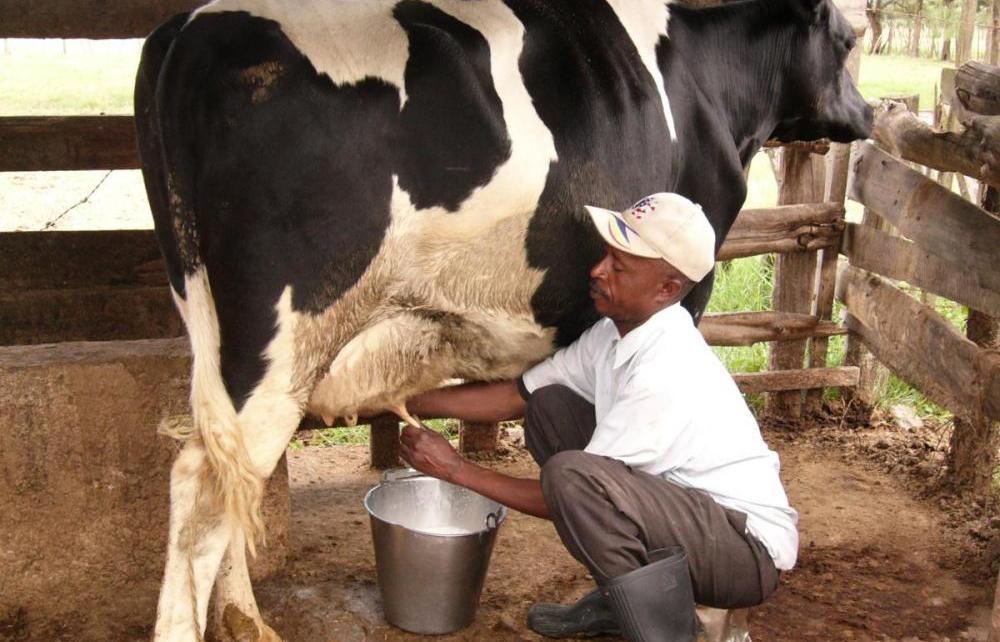
In a huge boost to Uganda’s dairy sector, SNV Uganda has signed a new partnership agreement with the Embassy of the Kingdom of the Netherlands in Uganda, worth Euro 10.4 million (sh42 billion) to implement Phase II of The Inclusive Dairy Enterprise Project (TIDE).
The additional funds will ensure SNV implements TIDE for another four years, and spurs a sector that has seen the country’s export value of dairy products shoot up from Euro 4.5 million in 2015 to an astonishing current Euro 90 million (US$99 million).
With African giants South Africa exporting between US$130 and 150 million per year in dairy products, Uganda is slowing inching into the top dairy exporting countries in Africa.
TIDE II will also see the programme extended to commercial farmers throughout Uganda, with priority on those in peri-urban Kampala and the Rwenzori Region.
SNV is implementing the TIDE project in the districts of Bushenyi, Isingiro, Kiruhura, Mbarara, Ntungamo, Sheema and Lyantonde in South Western Uganda with funding from the Netherlands Embassy.
Dairy exports have climbed from zero less than 10 years ago to the third highest agricultural export earner after coffee and fish.
“Coffee has for a long time dominated Uganda’s exports, but a quiet revolution has been taking place in the dairy sector in Southwest Uganda, offering lessons on sector transformation,” an SNV expert wrote recently.
Phase 1 goals achieved
The overall goal of TIDE Phase I was to support farmers to increase incomes by improving their dairy productivity. Since the launch of TIDE Phase I in 2015 the TIDE project has contributed to remarkable growth and transformation of Uganda’s dairy sector.
This has seen farmers invest significantly, co-investing Euro 6 million on their farms to improve production and productivity.
Export value of dairy products has increased from Euro 4.5 million in 2015 to the current Euro 90 million while processing capacity has increased from 100,000 litres per day to 1.5 million litres per day.
In the local communities, school milk consumption was also introduced with 300,000 pupils now drinking milk at school paid for by their parents. Initiated by the SNV project TIDE (funded by The Netherlands), cooperatives have opened a new market outlet by supplying local schools with milk.
Parents are contributing to the school, for their children to be provided with milk mixed in porridge during break time. In 2019, 300,000 children in over 900 schools (50% of the total enrollment in the project districts) are benefiting from this initiative. This constitutes a market of 6.6 million litres of milk per year (mostly bought from cooperatives), but is also an investment in the future market.
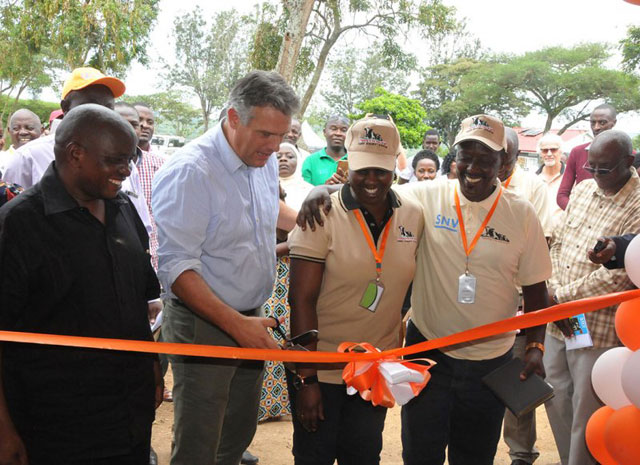
What’s in TIDE Phase II?
In the next four years, TIDE Phase II which starts in January 2020 will focus on; deepening and up-scaling results achieved under Phase I.
TIDE II will focus on the current TIDE project area (seven districts) in order to increase impact by supporting farmers through dairy advisory, training and extension to reap benefits from the investments made.
On the supply side of inputs and services, the focus will shift from market creation to market development. This by ensuring that the market delivers products and services to dairy farmers that are accessible, relevant, affordable and of high quality.
TIDE II will aim also at up-scaling the relevant products and services developed during phase I beyond the project targeted districts to commercial farmers throughout Uganda (mostly peri-urban Kampala and Rwenzori Region).
“While the dairy sector transformation is most pronounced in southwest Uganda, it is by no means confined to it,” an expert said.
Private sector companies will be actively supported to market their products and services in those areas (mainly through mobilising technical expertise and networking).
“The sector is peppered with individual and incidental success stories (from export to farmers), but to sustain and accelerate this change, the sector transformation requires to be supported, particularly from the financial sector and government. If that happens, the potential for further growth is truly revolutionary within the African context,” said an SNV expert.
